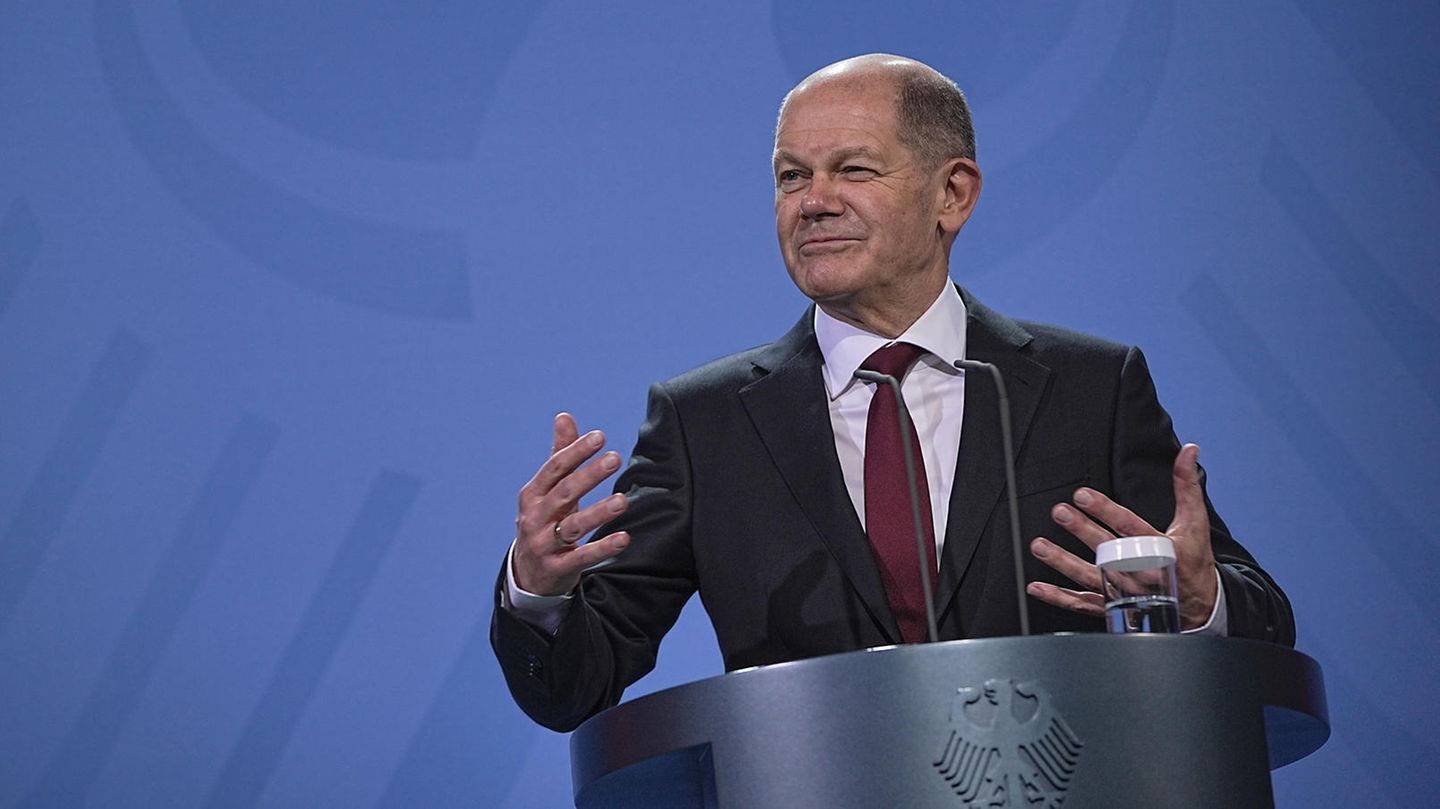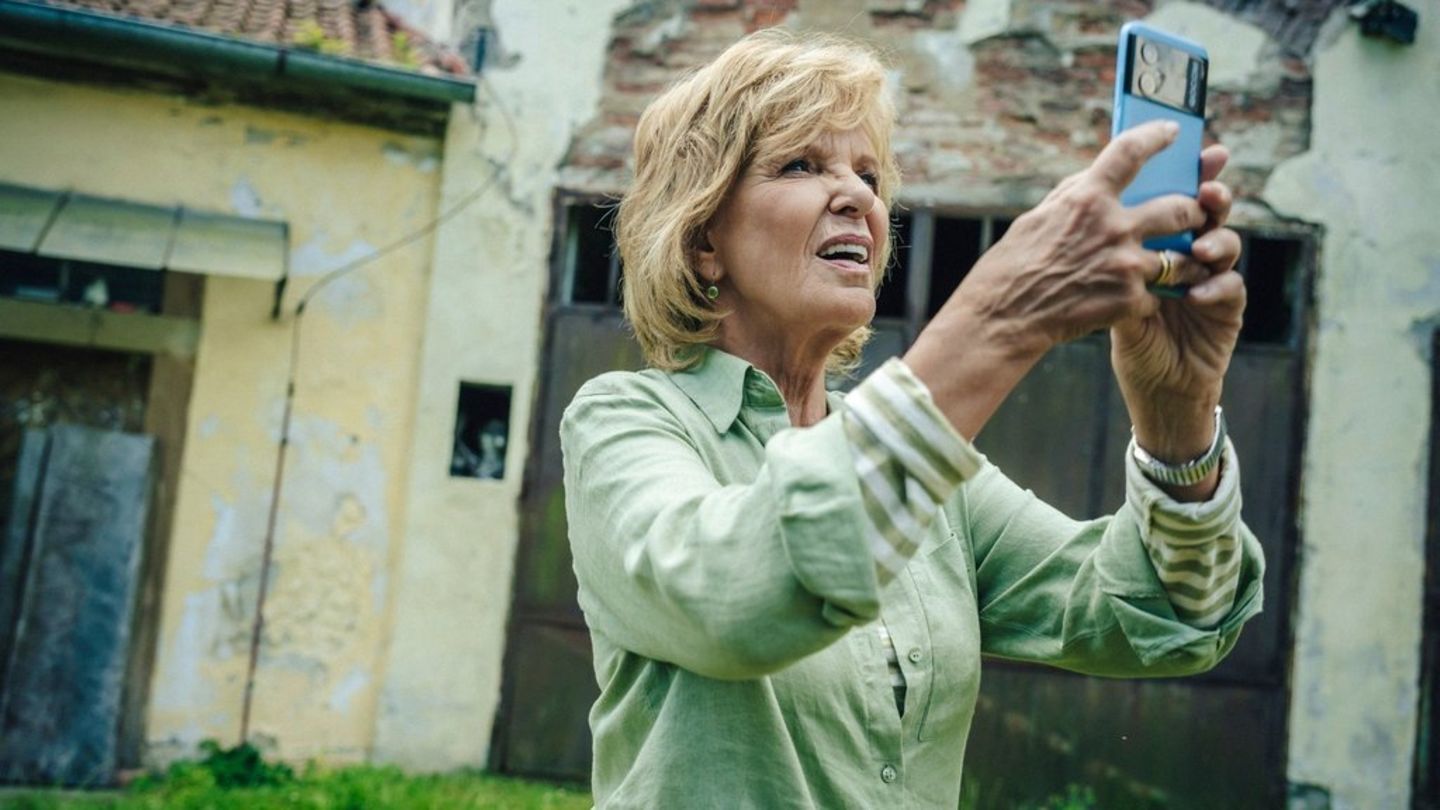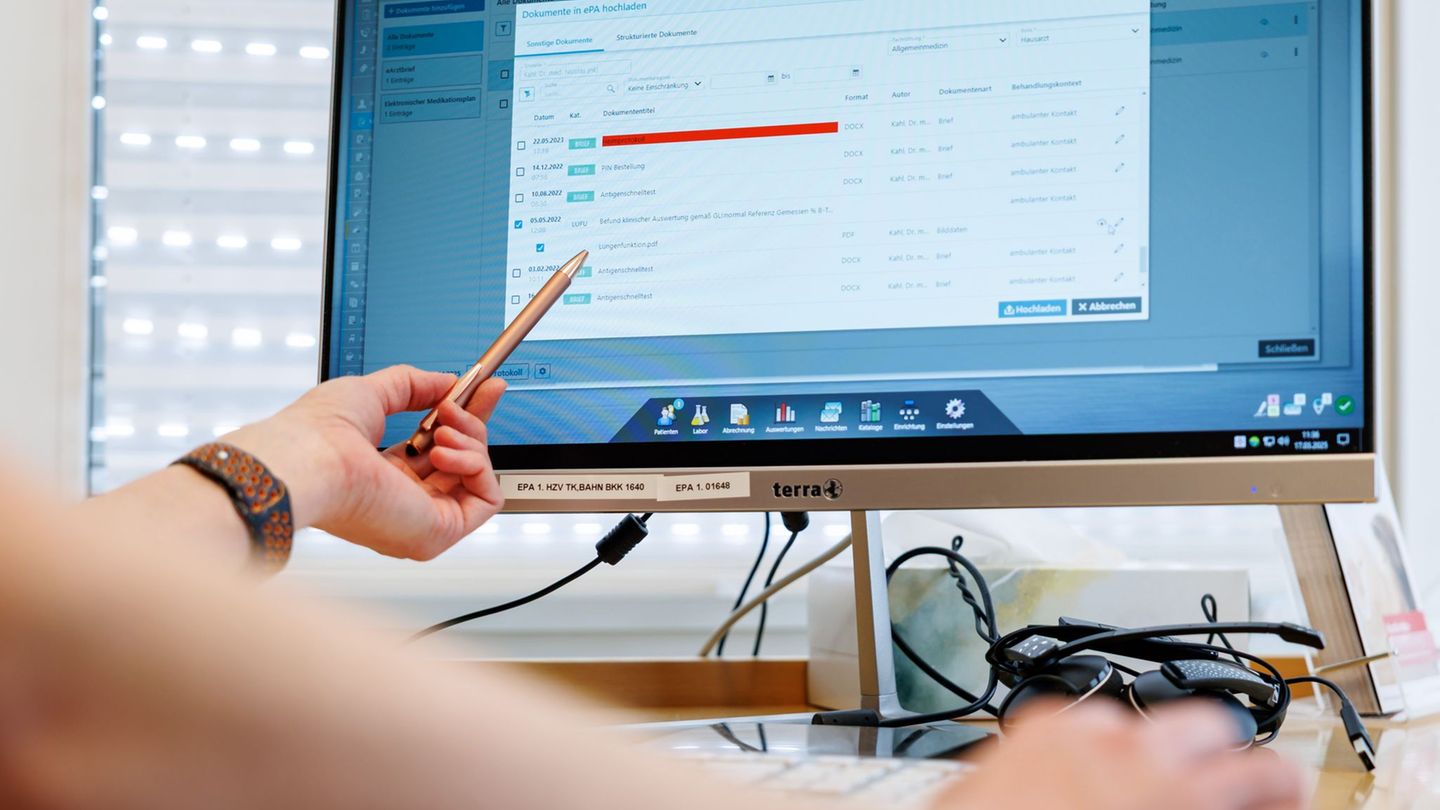New beginnings, progress, new beginnings: Olaf Scholz and the traffic light parties used such terms to raise expectations of a new federal government. Now they can prove whether there is something behind it – in the middle of one of the deepest crises in the republic.
Olaf Scholz is known for speaking in a low voice. But when he was asked by Bundestag President Bärbel Bas on Wednesday at 10:20 a.m. whether he would accept the election of Chancellor, he took off the black FFP2 mask, left the microphone aside and, exceptionally, answered loudly and clearly: “Yes”.
395 MPs previously gave him their votes, 21 fewer than the coalition has votes. Some MPs are sick and therefore not there, and there have also repeatedly been dissenters in the coalition ranks in previous Chancellor elections. So there is no need to worry for the newly elected Chancellor.
After the election, it goes to Bellevue Palace, where Scholz receives the certificate of appointment from Federal President Frank-Walter Steinmeier. He is now officially Federal Chancellor. The mission of the Chancellery, which has been pursued for so long, is over.
Olaf Scholz wanted to become chancellor when he was twelve
At noon on the dot, the 63-year-old takes his seat again in the Bundestag. It seems as if he is briefly inquiring where to sit. Then he goes to the blue chairs of the government bank, to Chancellor Square. When he sits down he is there all alone, a lonely chancellor still without a cabinet. The ministers have not yet been appointed at this point in time. Scholz takes the following oath of office without the addition of “so help me God”. He was baptized as a Protestant, but left the church.
The first traffic light coalition at federal level is finally sealed with the vote in the Bundestag. Two and a half months after the general election, Germany has a government again without the addition of “executive”. For the historic moment, Parliament’s President Bas (SPD) is even lifting the ban on photos for MPs before the election results are announced. “So that I don’t have to make 736 calls to order, I allow everyone to take pictures for this day, all members of the parliament,” she says. “But please be discreet.” Scholz later has to face a lot of selfies.
He received applause from all parliamentary groups except the AfD. There is also applause from the stands. On one of them are Scholz’s parents, his wife Britta Ernst, and the only surviving former SPD Chancellor Gerhard Schröder with his wife Soyeon Schröder-Kim in the front row. The father later says that when he was about 12 years old, his son wanted to become Federal Chancellor. “He set himself this goal very early on, when he was still a student,” says the 86-year-old. The fact that Olaf has now become it triggers a “feeling of happiness” in him.
Merkel wishes Scholz a “happy hand”
Chancellor Angela Merkel still sits on the other grandstand, framed by former Bundestag President Norbert Lammert and former Federal President Joachim Gauck. When the result is announced, it shows – typically Merkel – the diamond again. After a little delay, she gets up and starts clapping. These are the last moments of a 16-year era in which Merkel was the first female Chancellor of the Federal Republic to lead the country’s fortunes.
The Chancellor, who has left office, has wished her successor Olaf Scholz (SPD) a “happy hand” in the leadership of the country. Being Chancellor of Germany is “one of the most beautiful tasks there is,” said Merkel at the official handover on Wednesday afternoon in the Chancellery in Berlin. Scholz thanked Merkel for the “trusting” cooperation over the past 16 years.
“I know from my own experience that it is a moving moment to be elected to this office,” said Merkel to Scholz. “You may sense that it is an exciting, fulfilling task, also a demanding task. But if you take on it with pleasure, it is perhaps also one of the most beautiful tasks there is to be responsible for this country.”
The “northeast German mentality” remains
For his part, Scholz paid tribute to Merkel’s political merits. “You have achieved great things,” he emphasized. Together, he and Merkel had survived a number of crises, including the 2008/09 financial crisis and the 2015 refugee crisis. The fact that “trusting work always existed” shows “that we are a strong, efficient democracy in which there is a great consensus there between the responsible democrats “.
Nevertheless, Merkel had a particular impact on the country, the government and the Chancellery. Scholz promised the employees of the Chancellery that he wanted to build on “the north-east German mentality that prevailed here”: “That much will not change there.”
Merkel leaves, but her style remains. Scholz, who worked with her as Vice Chancellor for four years, takes Merkel’s recipe for success with him into the new government: solid management instead of spectacle. This became all too clear at the press conference after the coalition agreement was signed on Tuesday. Scholz didn’t reveal much, and he consistently didn’t answer some questions at all. Like the “awakening” that Scholz and the other traffic light coalitionists invoke again and again, it did not yet have an effect.
First of all, the Chancellor will be concerned with the factual constraints. He takes over the government in the middle of a crisis the likes of which the republic has never seen. The number of corona infections is at a record level, and in some regions of Germany the situation in hospitals is dramatic.
Corona does not give Scholz a grace period
Usually they say that a new government has a grace period: 100 days to settle in and try out, for first decisions, programs and projects. A time when observers are still holding back with evaluations. For Scholz it was the other way around. His hiatus actually ended 48 days before the Chancellor election, on the day when the coalition negotiations began and it was clear: the SPD, Greens and FDP are serious about the first traffic light federal government.
From then on there were two governments: one that was not completely gone and one that was not yet able to really get started. The power vacuum has meanwhile led to a rather bumpy management of the fight against Corona. Chancellor Merkel and soon-to-be Chancellor Scholz only got the curve late and agreed on a concept to contain the fourth wave of the corona pandemic.
Steinmeier warned the new cabinet when it was appointed to take decisive action against the pandemic. “The people hope that you will show leadership and – together with the federal states – take the necessary measures,” said the Federal President. “In an acute emergency, it is important not to listen to the loudest, but to ensure that the pandemic does not hold us tight for another year and that public life can become a matter of course again.”
Many tasks are waiting for the traffic light
The first decision to fight corona will be made in the Bundestag for the traffic light coalition on Friday. Changes to the Infection Protection Act will then be decided in order to make it easier for the countries to react to the pandemic again.
But there is also quite a lot of urgent need for action: Scholz has promised 30 million first, second and booster vaccinations by the end of the year. The Bundestag should also quickly vote on a general vaccination requirement, which, at the Chancellor’s request, could apply at the beginning of March at the latest.
On January 1st, to make matters worse, Germany takes over the chairmanship of the G7 of the largest Western economic powers. But there is not only work to be done in the Chancellery and the Ministry of Health: The new Finance Minister Christian Lindner (FDP) only has a few weeks to prepare a supplementary budget before the end of the year. Otherwise, the traffic light plan will not work to take loans that were not needed this year as leeway for the next few years. With the regular budget for 2022, however, Lindner can take some time, which is almost always late after a federal election.
And then there is the unfamiliar triple constellation in the federal government. Quite a few are already betting that the peace that was openly displayed during the negotiations will not last long – and that the old rifts between the SPD, the Greens and the FDP will soon break again, for example on financial and foreign policy issues. It is not for nothing that the SPD has promised to be more than just a mouthpiece for the new federal government.
Source From: Stern
David William is a talented author who has made a name for himself in the world of writing. He is a professional author who writes on a wide range of topics, from general interest to opinion news. David is currently working as a writer at 24 hours worlds where he brings his unique perspective and in-depth research to his articles, making them both informative and engaging.




